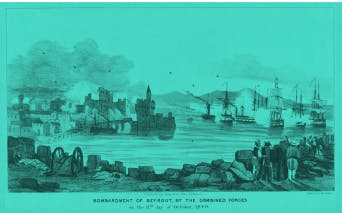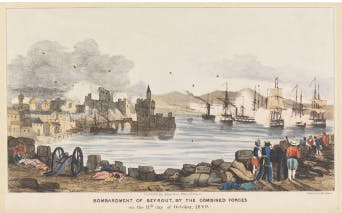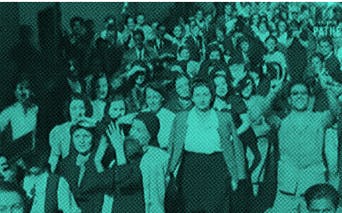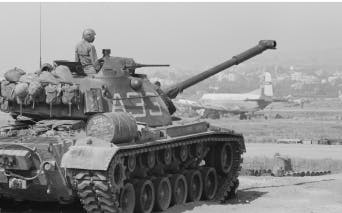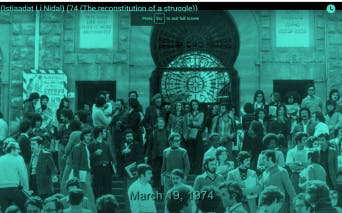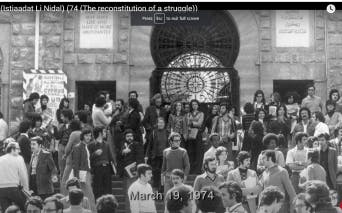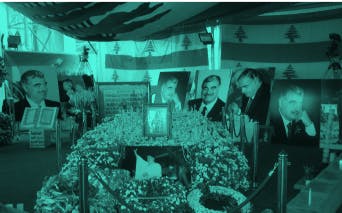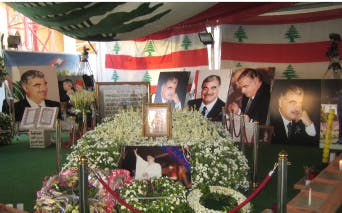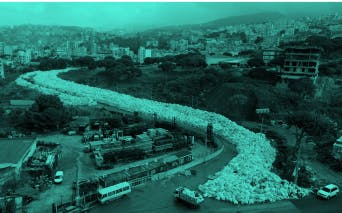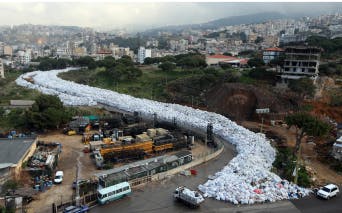French Mandate
1920-1946
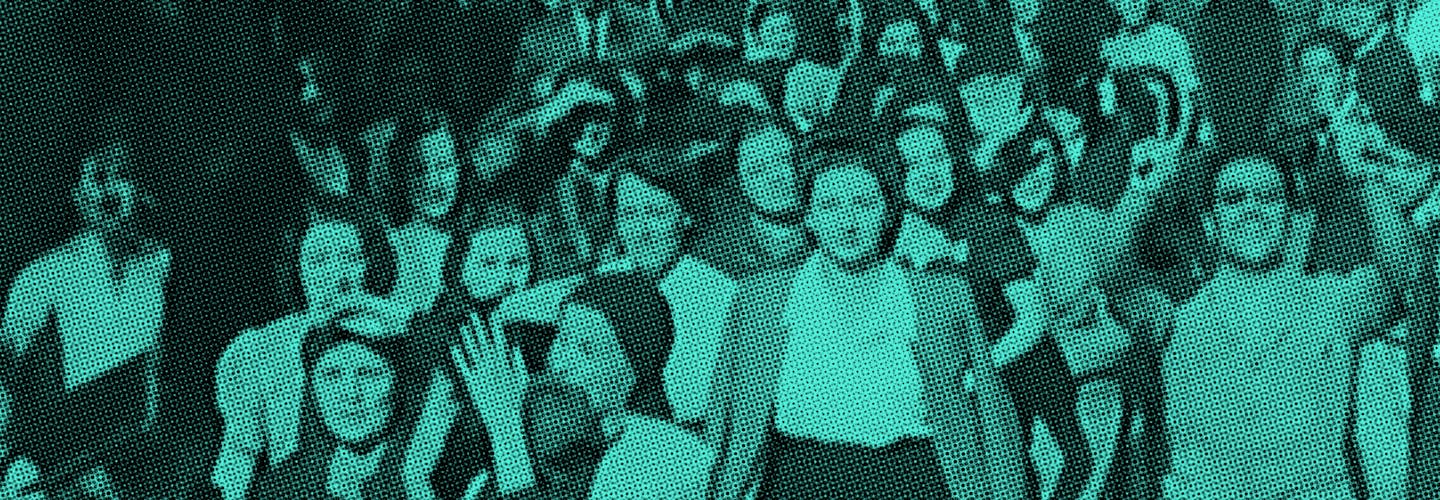
During the French Mandate, Beirut emerged as an important urban agglomeration with a large and diversified population. With rapid urbanization, population increase, and the formation of a significant workforce, the capital gradually established itself as a space for the manifestation of collective actions with urban, regional, and national scopes (Eddé 2002; 2004). Agitation and popular mobilizations were endemic to the city and took diverse forms-- strikes, consumer boycotts, marches, and mass protests—that actively occupied the city’s main arteries, its squares, and markets (suqs).
The formation of a labor unionist movement (General Syndicate of Tobacco Workers, 1924), the creation of professional and women’s associations (The Women’s Union in Syria and Lebanon, 1922-24), and popular organizations (Lebanese People’s Party, 1924; Communist Party, 1925; Syrian National Party, 1932; Kata’ib/Phalanges, 1936) contributed toward the shaping of a new kind of popular politics (Baun 2021), galvanizing Lebanese society to actively call for labor and women’s rights, and for independence from France.
During the first decade of the mandate (1920-1930), strikes organized by workers (car and chariot drivers, shoemakers, carpenters, tramway, and tobacco workers), asking for salary increase, achieved limited success (Couland 1970; Eddé, 2004). The tramway boycotts of 1922 and 1931 were directed at a French-Belgian concessionary company. The Tramways and electric company boycotts were by far the longest and most effective mode of peaceful civil disobedience and were well supported by large factions of the population (Eddé 2002; Pascoe 2019).
The boycott of 1931 stands out in terms of planning, organization, scope, and impact. Starting in Beirut, the boycott rapidly spread to Damascus and other cities and directly challenged mandatory powers which feared mass civil disobedience along the Gandhian model. Directed against “concessionary imperialism,” it marked the first time that Beirut’s diverse social classes and confessional communities came together to act and speak as one (Edde 2004; Pascoe 2019)
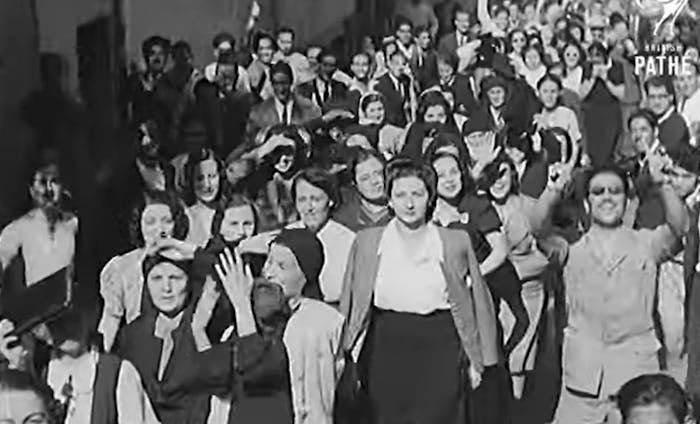
The Trouble In Lebanon (1943) - YouTube, British Pathé
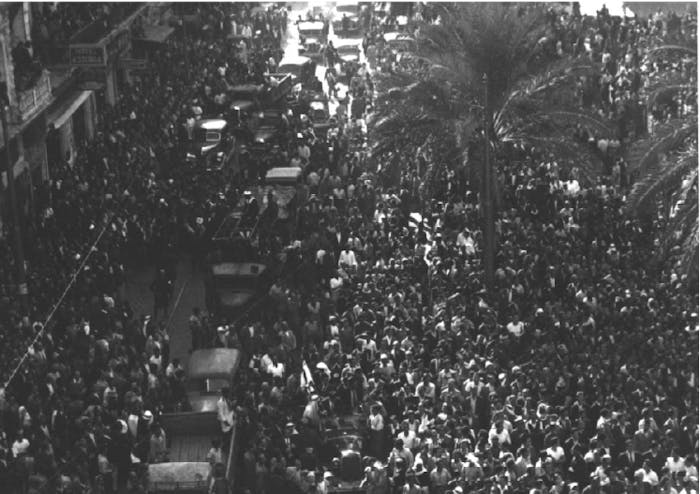
Marty’s Square during celebrations marking the release by the French of Lebanon government from Rashayya prison on November 22, 1943

The Octopus Regie. An octopus, representing the Regie, tightly surrounds the Syrian Lebanese major cities and stifles their economic freedom. Al-Ahrar al-Musawwara 1, no. 10 (Mar. 15, 1926), 1.
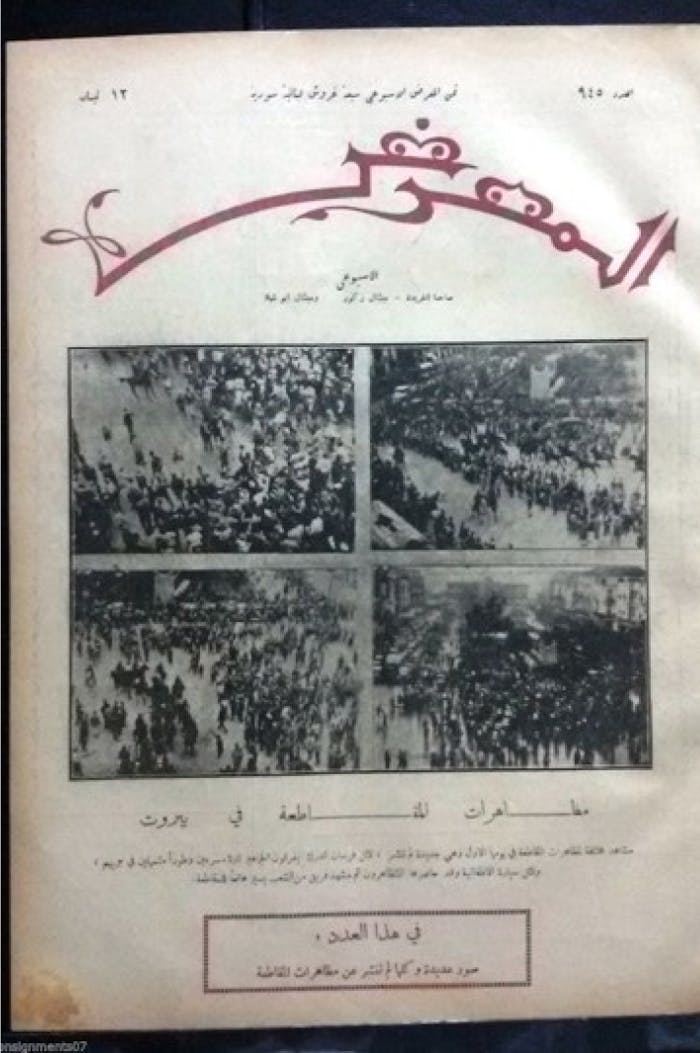
Tramway Boycott. Majallatal-Ma’rad no. 945 (1931). AUB Archive Collection
Abisaab, Malek Hassan. “‘Unruly’ Factory Women in Lebanon: Contesting French Colonialism and the National State, 1940-1946.” Journal of Women’s History Journal of Women’s History 16, no. 3 (2004): 55–82. https://doi.org/10.1353/jowh.2004.0056
Abissab, Malek. Militant Women of a Fragile Nation. Syracuse, NY: Syracuse University Press, 2010.
Abisaab, Malek. “Shi`ite Peasants and a New Nation in Colonial Lebanon: the intifada (uprising) of Bint Jubayl, 1936,” Comparative Studies of South Asia, Africa, and the Middle East 29, no. 3 (2009), 483-501.
Abu Rish, Ziad. “Conflict and Institution Building in Lebanon, 1946-1955.” Ph.D. dissertation, University of California, Los Angeles 2014.
Baun, Dylan. Winning Lebanon. Youth Politics, Populism, and the Creation of Sectarian Violence, 1920-1958. Cambridge: Cambridge University Press, 2021.
Eddé, Carla. “La mobilisation “populaire” à Beyrouth à l’époque du Mandat, Le cas des boycotts des trams et de l’électricité.” in Meouchy, Nadine ed. et al. France, Syrie et Liban 1918-1946 : Les ambiguïtés et les dynamiques de la relation mandataire. Damas: Presses de l’Ifpo, 2002. [http://books.openedition.org/ifpo/3200]
Edde, Carla. “La mobilization Populaire a Beyrouth a l’epoque du Mandat (1918-1943): l’apprentissge progressing de la participation,” in Meouchy, Nadine and Peter Sluglett, eds. The British and French Mandate in Comparative Perspectives. Leiden, Boston: Brill 2004.
Couland, Jacques. Le movement syndical au Liban, 1919-1946. Paris: Editions sociales, 1970.
Kawtharani, W. Al-ittijahat al-ijtimaiya al-siyasiya fi jabal lubnan wa-l-machreq al-arabi 1860-1920. Beirut: Ma’had al-inma’ al-arabi, 1982.
Khuri-Makdisi, Ilham. The Eastern Mediterranean and the Making of Global Radicalism, 1860-1914. Berkeley: University of California Press, 2010.
Pascoe Stephen. “A “Weapon of the Weak”. Electric Boycotts in the Arab World and the Global. Contours of Interwar Anti-Imperialism,” Radical History Review no. 134 (May 2019), 116-141. https://doi.org/10.1215/01636545-7323432
Tannoury-Karam, Sana. “The Making of a Leftist Milieu: Anti-Colonialism, Anti-Fascism, and the Political Engagement of Intellectuals in the Mandate Lebanon, 1920-1948.” Ph.D. dissertation, Northeastern University, 2017.
Thompson, Elizabeth. “The Climax and Crisis of the Colonial Welfare State in Syria and Lebanon during World War II,” in Heydemann, Steven, ed. War, Institutions, and Social Change in the Middle East. Berkeley: University of California Press, 2000.
Thompson, Elizabeth. Colonial Citizens: Republican Rights, Paternal Privilege, and Gender in French Syria and Lebanon. New York: Columbia University Press, 2000.


